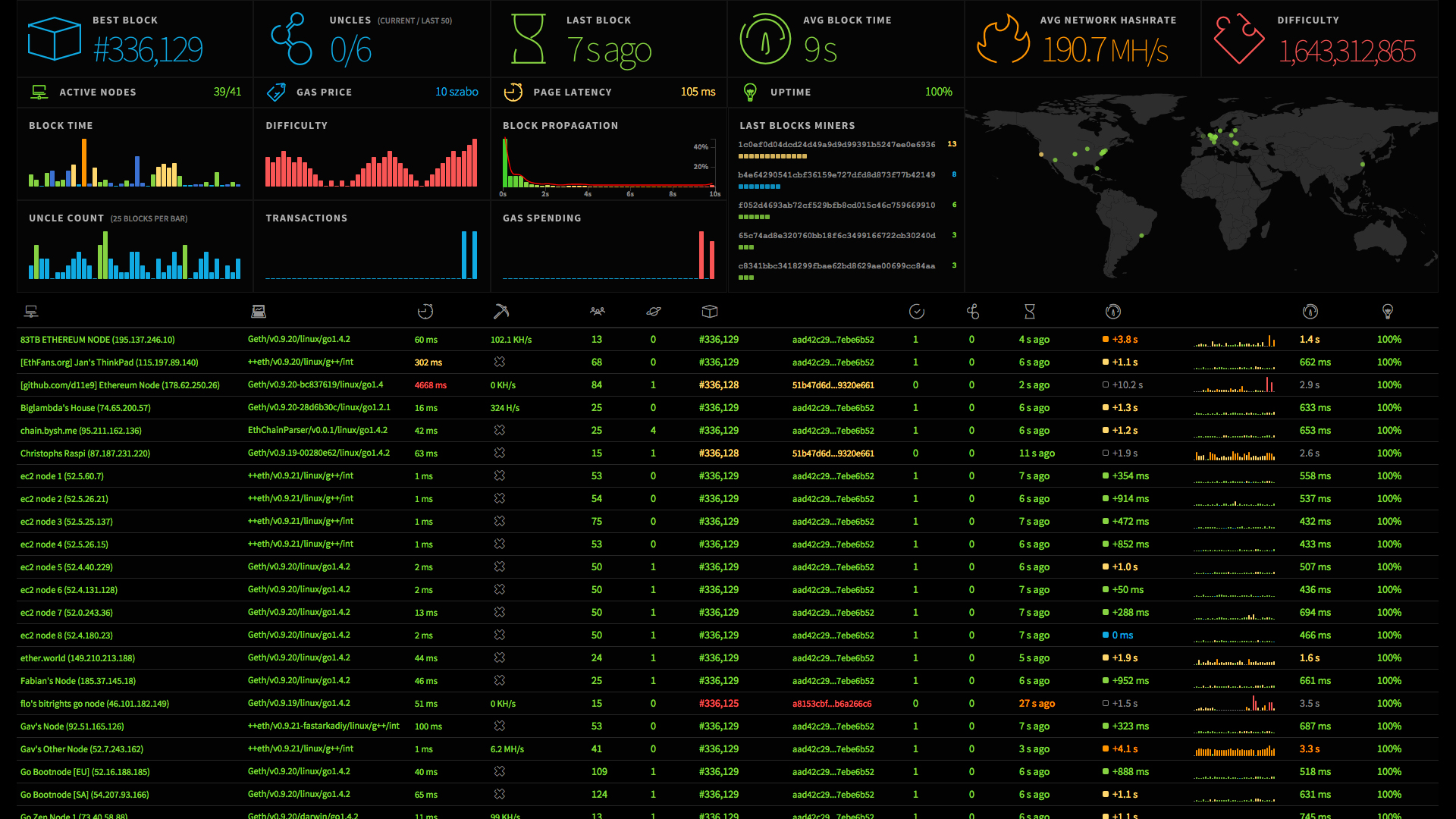[![Build Status][travis-image]][travis-url] [![dependency status][dep-image]][dep-url]
This is a visual interface for tracking Callisto Network status. It uses WebSockets to receive stats from running nodes and output them through an angular interface. It is the front-end implementation for go-callisto.
How to list my nodes on stats.callisto.network ?
Using go-callisto
Add --ethstats option behind the start command
example)
geth --ethstats "<your-nickname>:Callisto@clostats.net"- node
- npm
Make sure you have node.js and npm installed.
Clone the repository and install the dependencies
git clone https://github.com/EthereumCommonwealth/clo-netstats
cd clo-netstats
npm install
sudo npm install -g grunt-cliNetStats features two versions: the full version and the lite version. In order to build the static files you have to run grunt tasks which will generate dist or dist-lite directories containing the js and css files, fonts and images.
To build the full version run
gruntTo build the lite version run
grunt liteIf you want to build both versions run
grunt allnpm startIf you want some sweet auto build and livereload run
grunt watch- Install PM2:
sudo npm install -g pm2- Create an app.json file in the local directory of etsc-netstats:
{
"name" : "clo-netstats",
"cwd" : "<folder-path-to-etsc-netstats-e.g. /home/gethadmin/clo-netstats/>",
"script" : "app.js",
"log_date_format" : "YYYY-MM-DD HH:mm Z",
"merge_logs" : false,
"watch" : false,
"exec_interpreter" : "node",
"exec_mode" : "fork_mode",
"env":
{
"NODE_ENV" : "development",
"PORT" : <port>,
"WS_SECRET" : "<password>"
}
}
]
- Run etsc-netstats as PM2 service and persist the service for reboot
pm2 start ./app.json
pm2 savesee the interface at http://localhost:3000
